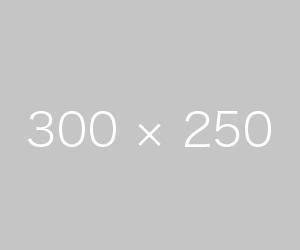Dear Yuko Nishikawa Sensei,
Half of 2025 has already passed. Working in creative productions, I often find myself preparing for future projects while simultaneously managing those already underway—an ongoing cycle that constantly reminds me just how quickly time passes. Amid this accelerating pace, I find myself wrestling with a persistent and difficult question: how and where to begin a new path of learning that will allow me to continue refining myself without losing my sense of direction. These are days filled with constant questioning.
In the world of Nihon Buyo, there is a traditional belief that beginning one’s practice on June 6th at the age of six will lead to artistic success. I was recently reminded of this when I heard a story shared by ‘Iemoto’ (the grandmaster) of a Nihon Buyo school, which went something like this: “Children can train themselves to imitate what they see. But adults, after seeing something, tend to filter it through their own thoughts before imitating it—resulting in something quite different.” The essence of this story suggested to me that the tradition of “June 6th at age six” holds more than symbolic value—it seems to carry timeless wisdom that still resonates today.
When starting to learn something new as an adult, what kind of mindset do you believe is most important?
There are now many adult-oriented cultural workshops that resemble the ‘Terakoya’ (temple schools) of the past, and it has made me reflect on how adults living in today’s global society can discover—and fully commit themselves to—forms of study or practice that allow them to clear their minds and cultivate truly meaningful new strengths.
I recall how our mutual teacher, the Nihon Buyo artist Hanayagi Shigeka-sensei, would often say during rehearsals, almost offhandedly, “Your personality won’t change—so change your way of thinking!”
I remember these words striking a chord with me—they made me realize just how much one’s way of thinking can shape everything, and how vital it is to put those realizations into practice.
I would be most grateful if you could share your thoughts on this matter, Yuko-sensei.
Mitsuru Tamatsuka
(Creative Producer)

Dear Mr. Mitsuru Tamatsuka,
I believe that approaching one’s work with a sense of freshness is essential—not only for those who create, but also for those who receive the outcome of that work. Since you are someone who brings imaginative, uplifting projects to the world, I suspect you are more attuned than most to the importance of such a mindset.
If the sense of wonder first awakened in a child of six can be rekindled again and again in adulthood, then surely the joy of creation will naturally manifest in one’s work—and that joy will, in turn, reach and move the hearts of an audience. However, as you mentioned in your letter, this is not so easily achieved once we become adults. The values and assumptions we acquire with age can interfere with new learning. And especially when seeking to master various expressive forms for today’s increasingly global audiences, one must often revise—or even cast off—long-held perspectives.
In that sense, I feel I have been fortunate— or perhaps in a safe realm. In addition to my early immersion in the Nishikawa style, I had the privilege of studying under Hanayagi Shigeka-sensei, which led me to explore related disciplines such as Nagauta, Shamisen, Narimono (percussion), and even Shimai (Noh dance excerpt) and Kyogen. Since my fifties, I’ve also studied ballet with Tatsuro Mori-sensei. To put it another way, I’ve gradually broadened my perspective by stepping into neighboring realms of performance in order to deepen my own practice—and that process has brought me continued joy.
To your question—how can we approach something with a clear and open mind?—my response may seem contradictory: I have always studied with full awareness. In the world of traditional arts, steadfast devotion to a single path is highly valued. And yet, as the saying goes, “art is the person”—the work reflects the artist’s character. For me, the desire to refine myself has always been the source of my motivation to learn.
Precisely because we live in an age of overwhelming information, I believe it is essential not to rely on a single viewpoint. Instead, we must train ourselves to see with multiple lenses in order to grasp the essence of things.
Mr. Tamatsuka, I wish you continued success and fulfillment in all that you pursue.
Yuko Nishikawa